Maekawa Shingo promised his mother that if he couldn’t break through the music scene within a year, he would give up music forever and resume his work as a local truck driver. A few years earlier he had been suspended from high school for punching a bully during his act. The rebel culture of the new high school he moved to had transformed him into a furyou (no-good person). He got in fights with strangers, went on drinking streaks with friends, and left home for days at a time. Through this all, his mother worked tirelesly day and night to support him and his sister.
One day, Shingo came home from one of his drinking streaks and found food prepared for him on the table. He hadn’t been home for a few days, and his mother had no way of knowing when or if he would come home. She had made food for him every day in case he had decided to come back home. This moment of realization left an impact on him. He decided to quit fooling around, save enough money to go to music school, and pursue the only thing left in his life he felt truly passionate about.
Shingo worked as a local truck driver for three years to save enough money. This in itself was a feat that his mother and sister celebrated. But during dinner one day, he made a gut-decision to forsake music school to start his own band. Although his sister vehemently opposed this seemingly rash decision, shouting at him “how much do you plan on making mother cry?” his mother stayed silent. The next day, mother brought home for him a brand new guitar with the little money she had left. And this was where he promised her that he would give it his all for one year, and let it be if things fell through.
He created the band Kariyushi 58 with his friends–Kariyushi meaning “good-fortune” in Okinawa and 58 representing the state highway in Okinawa. His first album “Koibito yo” (to my lover), was good enough to get a contract from a Indies label. They printed 2000 copies, but 1300 of them came back unsold. With the lasckluster performance from the get-go, the label that had just signed them came back and told them that their next album would be their last.
By this time, the band knew that it was the end for them. And so, having left nothing but a trail of disappointments and trouble in his life until now, he used this opportunity as a last chance to leave something more meaningful behind. He dedicates this song “Anma” (word for “Mother” in the Okinawa) to his mother.
——————————
English translation “Anma” (Japanese lyrics below)
I heard I was born in a sunny afternoon of early summer.
I heard my mom was so ecstatic, it was quite a spectacle.
I heard she prayed, “I just want you to live the way you believe”
and after much thought, she gave me this name.
From back then, we were not of the very wealthy.
I always envied my friends’ bicycles and toys,
and I would cry endlessly next to my mother
who would repeatedly say “I’m sorry” with a slightly forlorn face.
Mother, you would always forgive,
believe, and embrace everything I do.
Unsparingly, you would pour everything you had for me
And yet I lived as if I didn’t notice.
I got in fights and did terrible things,
having embraced a mistaken notion of strength.
I fooled around as I wished,
but when I tip-toed home in the middle of the night,
There on the narrow dining table, sat rows of food.
I would turn a blind-eye to my weakness,
and line up pretentious words, living life lazily.
When I came home showered in alcohol,
You would leave town at daybreak,
In the light-darkness of early morning for work.
Mother, I spewed words I should never say,
relentlessly, and stopmped on your heart like it was nothing.
Mother, you continued to show me love, unchangingly.
With warmth like sunlight filtering through trees,
With kindness like the depth of the ocean,
You embraced everything, everything, about me
The sunset I watched with you in Yaese on your back,
still shades the town red to this day.
There was a love that engulfed
everything, my excessive stubbornness, unfair lies, everything.
I am so happy to have been born by your side,
As this stupid me, I have only realized now.
In a calm morning in the beginning of spring,
a new life was born.
A little girl who laughs just like you, a real treasure.
I prayed for her to become a girl,
with braveness lurking behind her kindness.
And so I named her after your favorite flower.
Japanese Lyrics (Anma/アンマー)
初夏の晴れた昼下がり 私は生まれたと聞きました
母親の喜び様は大変だったと聞きました
「ただ真っ直ぐ信じる道を歩んでほしい」と願いこめて
悩み抜いたすえに この名を私に付けたと聞きました
我が家はあの頃からやはり 裕福な方ではなく
友達のオモチャや自転車を羨ましがってばかり
少し困ったような顔で
「ごめんね」と繰り返す母親のとなりで
いつまでもいつまでも泣いたのを覚えてます
アンマーよ アナタは私の全てを許し
全てを信じ全てを包み込んで
惜しみもせずに 何もかもを私の上に注ぎ続けてきたのに
アンマーよ 私はそれでも気付かずに
思いのままに過ごしてきたのでした
「強さ」の意味をはき違えて ケンカや悪さばかりをくり返し
勝手気ままに遊びまわる 本当にロクでもない私が
真夜中の静けさの中 忍び足で家に帰ったときも
狭い食卓の上には 茶碗が並べられていました
自分の弱さに目を背け 言い訳やゴタクを並べ
何もせずにただ毎日をだらだらと過ごし続け
浴びる程に飲んだ私が 明け方眠りに落ちる頃
まだ薄暗い朝の街へ 母は出て行くのでした
アンマーよ 私はアナタに言ってはいけない
決して口にしてはいけない言葉を
加減もせずに投げつけてはアナタの心を踏みにじったのに
アンマーよ アナタはそれでも変わることなく
私を愛してくれました
木漏れ日のようなぬくもりで 深い海の様な優しさで
全部 全部 私の全てを包み込んだ
アナタの背中に負われながら 眺めた八重瀬岳の夕陽は
今日も変わらず 茜色に街を染める yeah
度が過ぎるほどの頑固さも わがままも卑怯な嘘もすべて
すべてを包み込むような愛がそこにはありました
アナタのもとに生れ落ちたことは こんなにも幸せだった
今頃ようやく気付きました こんな馬鹿な私だから
春先の穏やかな朝に新しい命が生まれました
アナタの様に良く笑う宝石みたいな女の子
「優しさの中に凛々しさを秘めた人」になるようにと願い
アナタの一番好きな 花の名前を付けました
After this song was released, the label was flooded with requests from local radio stations to play this song. The calls spread to radio stations around the country, and in the same year the song was released, the band won the Japan Cable Radio Award–a surprise win for an Indies Band. This was in 2006. They continue to play to this day.
*Credit to the Japanese TV show “Unbelievable”.
*The Translations are not perfect, I apologize beforehand for any mistakes or inaccuracies


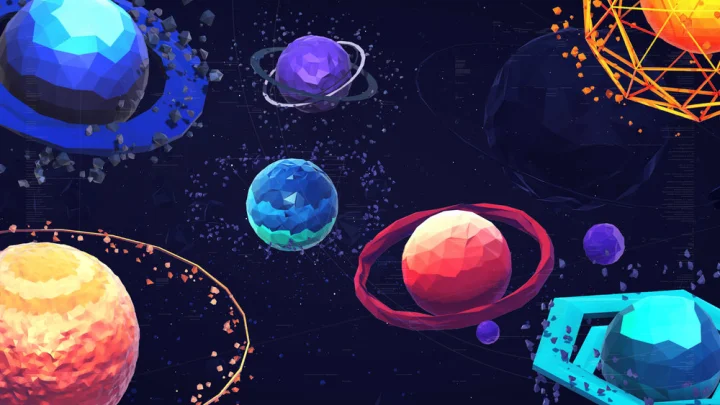 Loss. The common interpretation of a woman who leaves her man to see if they belong together is, in fact, not what Monahan had in mind when he wrote this song. It is actually a song about his mother’s death, and the birth of a new perspective on life that has helped millions cope with the loneliness of seeing off their loved ones as they are left to grieve. The tragic news of his mother’s loss to cancer struck when Train was on tour on December 1998 before their rise to stardom. On top of this grievance, the band was under heavy pressure by their label to produce a smashing hit after two years of only moderate success. It was too much for Monahan, and he retreated to Pennsylvania for inspiration. During this retreat, the seeds to the band’s most beloved song was born.
Loss. The common interpretation of a woman who leaves her man to see if they belong together is, in fact, not what Monahan had in mind when he wrote this song. It is actually a song about his mother’s death, and the birth of a new perspective on life that has helped millions cope with the loneliness of seeing off their loved ones as they are left to grieve. The tragic news of his mother’s loss to cancer struck when Train was on tour on December 1998 before their rise to stardom. On top of this grievance, the band was under heavy pressure by their label to produce a smashing hit after two years of only moderate success. It was too much for Monahan, and he retreated to Pennsylvania for inspiration. During this retreat, the seeds to the band’s most beloved song was born.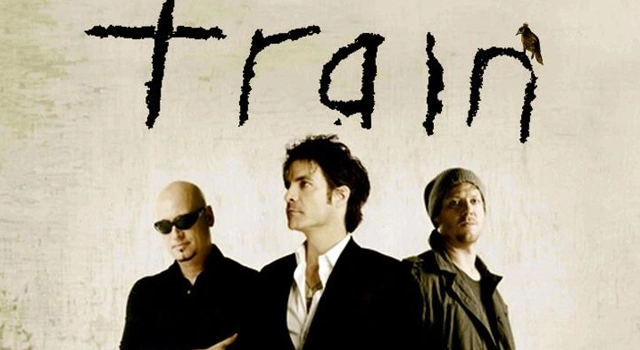

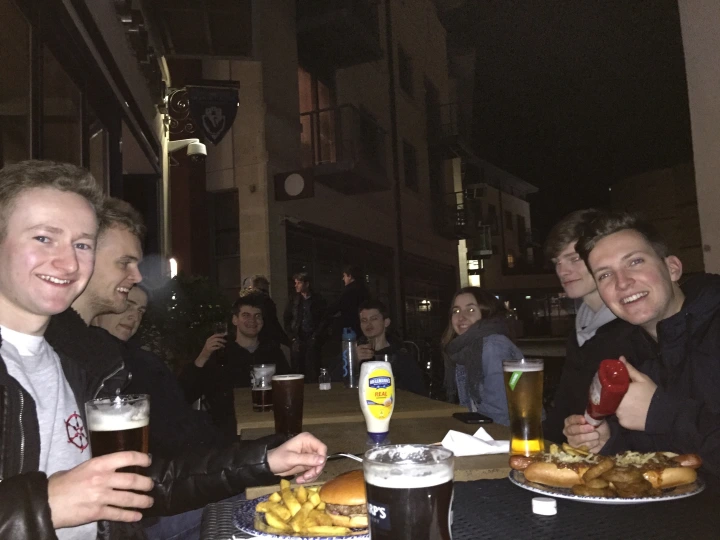
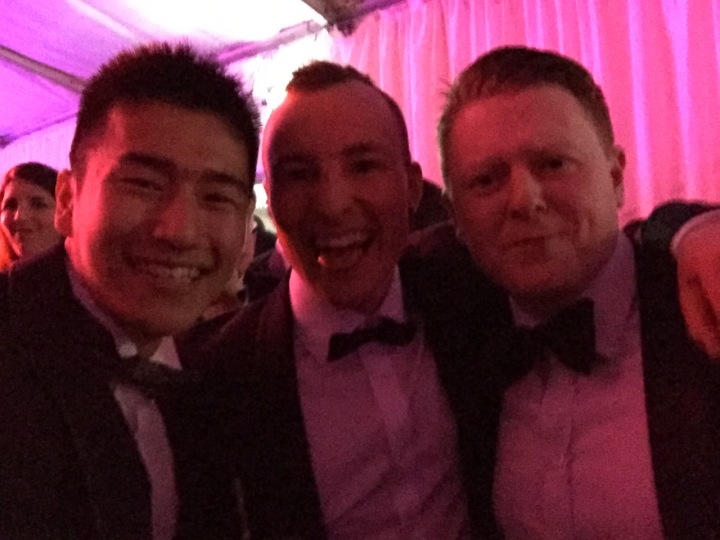
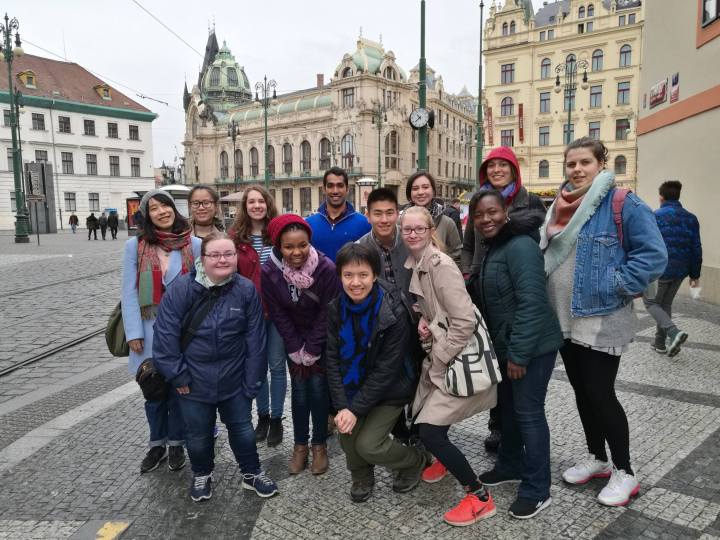
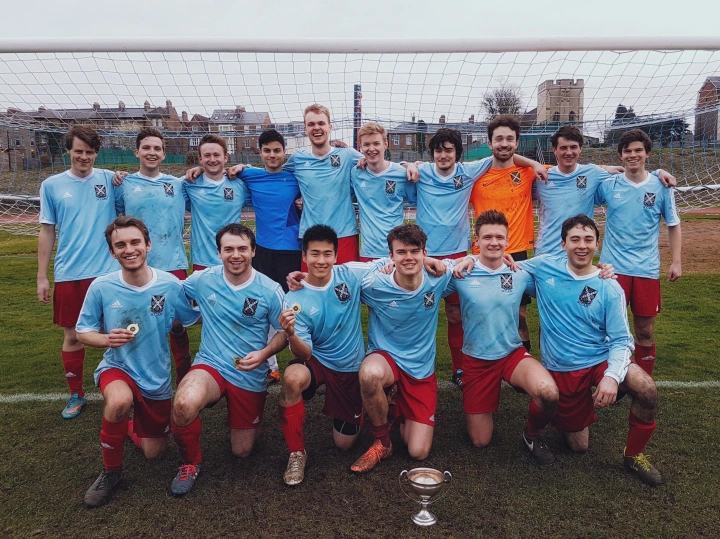
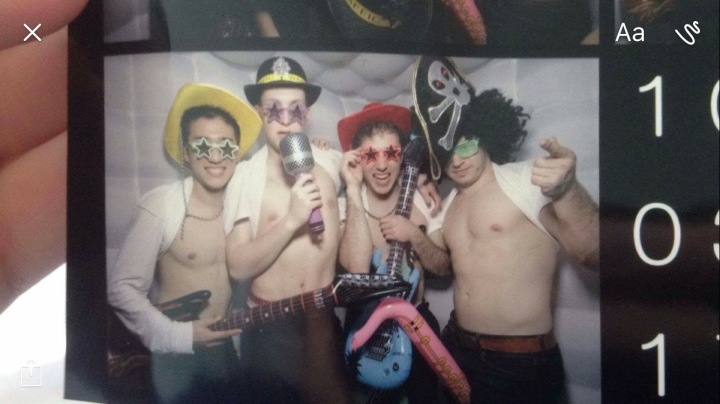
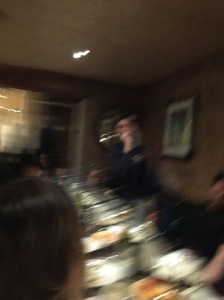
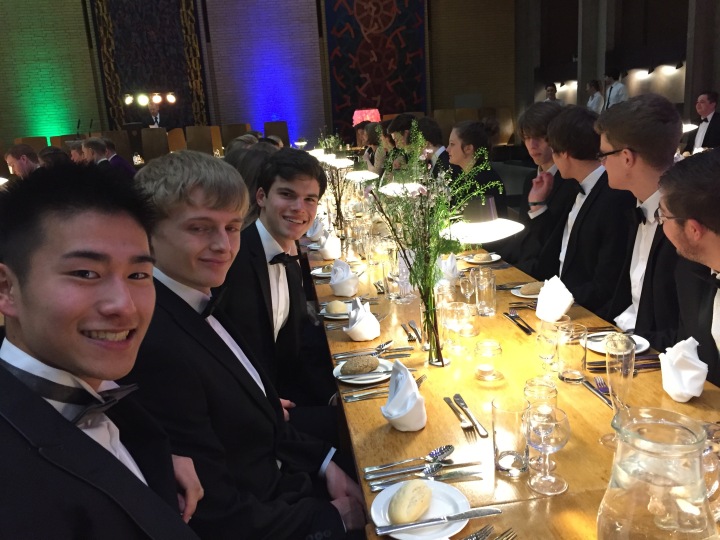
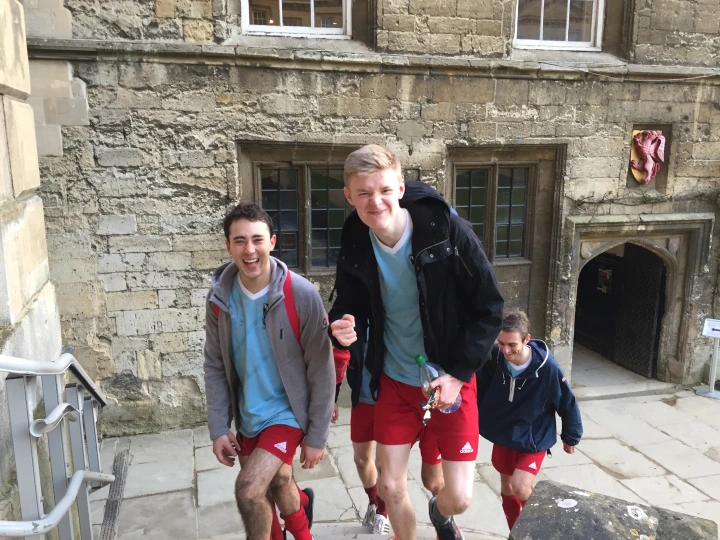


 John F. Kennedy airport on my way to Japan in 2015 (I think)
John F. Kennedy airport on my way to Japan in 2015 (I think)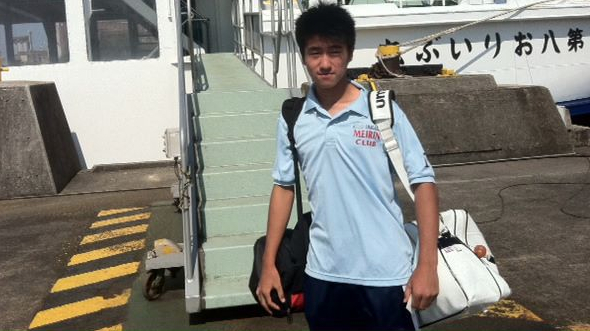
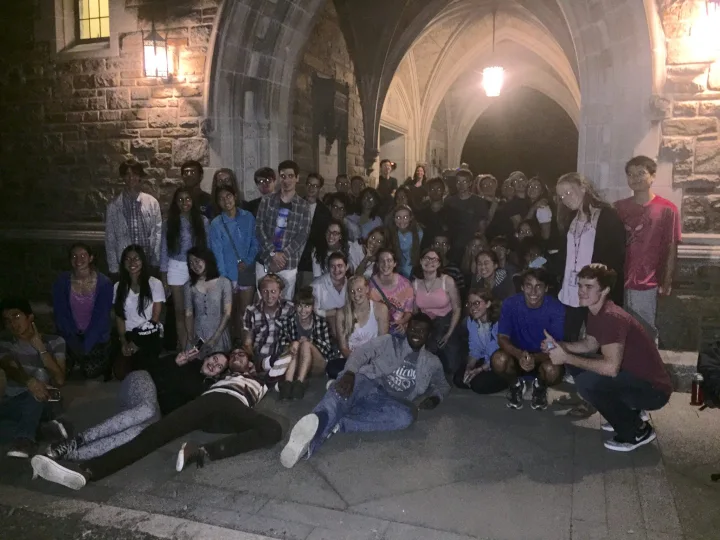 The first successful event our organization put on
The first successful event our organization put on 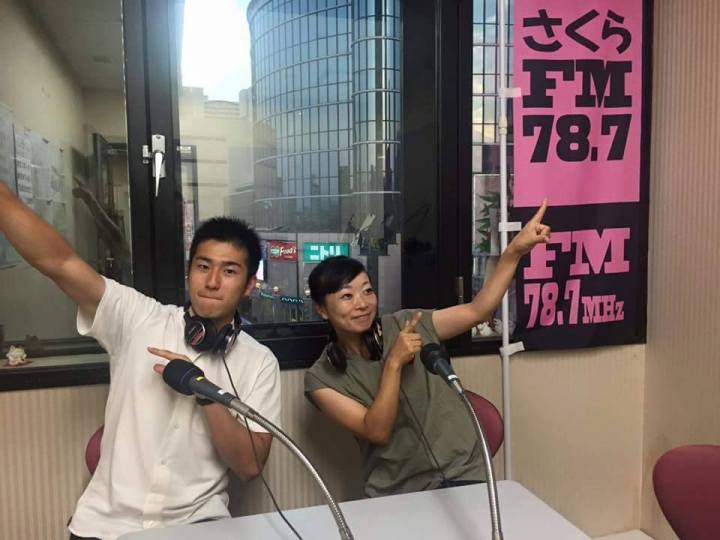 Talking about my experiences abroad on a national Radio station!
Talking about my experiences abroad on a national Radio station!  This is actually the path to class Mon and Thu. Morning–I don’t get to cross the bridge, though 😦
This is actually the path to class Mon and Thu. Morning–I don’t get to cross the bridge, though 😦  The Blavatnik School of Government at Oxford, known for its unique modern architecture
The Blavatnik School of Government at Oxford, known for its unique modern architecture  The old St. Catz Uniform that I use though the colors are the same
The old St. Catz Uniform that I use though the colors are the same  Clark lost in a real life maze at Leeds Castle 10 minutes after I reach the goal
Clark lost in a real life maze at Leeds Castle 10 minutes after I reach the goal